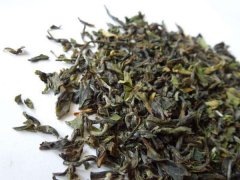The Historical Development track of Tea the Development History and Culture of Chinese Tea Trade
Many years ago, the whole tea production process from leaves to cups was in the hands of the Qing government. Foreign countries know nothing about tea varieties or production technology, and all they have is the power to buy and sell tea. During the Qing Dynasty, China was not only the country with the largest tea output in the world, but also the country with the largest tea export.
With the popularity of tea in the European royal family, ordinary people below began to follow this trend. Among them, Britain first bought a large amount of tea from the hands of the "sea coachman" Dutch, and then went to the origin to find the source of goods and started its own tea trade. As more and more tea is bought, so does the outflow of silver.
In order to prohibit the outflow of large amounts of silver, British opium poppy and Chinese camellia went to war.
It is well known that opium poppy fruit was processed and refined into opium, and opium was planted and processed in the British colony of India at that time. For more than two hundred years, the British East India Company used the profits from opium sales to China to buy tea, while the Qing government obtained silver from the tea trade and bought opium from British merchants.

But in 1729, the then ruler of the Qing government suddenly banned the sale of opium in China, but opium could still be smuggled in, and opium sales increased rapidly and steadily, increasing fivefold from 1822 to 1837 alone.
In 1832, Lin Zexu's time at Humen angered the British, who used this as an excuse to send troops to make profits by force and forced the Qing government to sign unequal treaties with European powers.
Since the time of Marco Polo, few Westerners have been able to spy on the scenery of China's interior. For more than 200 years before the first Opium War, British ships could only be moored in Guangzhou. There is no way for the British to get in and out of places other than their place of residence.
The evil Western empire opened China's door with cannons and wantonly plundered China's treasures. Fearing that the Qing government might legalize opium, the British Empire sent its own botanists to tea-producing areas in China to try to steal tea seeds and find an ideal place to grow in India. in order to get rid of the dependence on Chinese tea.
Important Notice :
前街咖啡 FrontStreet Coffee has moved to new addredd:
FrontStreet Coffee Address: 315,Donghua East Road,GuangZhou
Tel:020 38364473
- Prev

The most famous Darjeeling Black Tea Brand the correct brewing ratio of Darjeeling black tea to water
The withering process of spring picking tea in Darjeeling is the same as that of oolong tea. The main purpose of withering is to activate enzyme oxidation naturally by dehydration. As a result, the tea leaves wither to produce a very sweet flower fragrance. In fact, oolong tea is made in the same way. We met several tea real estate managers in Darjeeling who dared to say that spring picking tea in Darjeeling is a kind of oolong tea. None
- Next

Manual coffee water injection circle guide single coffee bean performance-to-price ratio recommendation form
Water injection in the form of circle in hand-brewed coffee has basically become the most extensive form of brewing, and the form of circle is also very diverse, some like to circle in small circles, some like to make large circles, some like to throw water quickly, and some like elegant and uniform circles. and, of course, irregular circles. Are there any obvious differences in the taste of coffee brewing with so many forms of circular water injection?
Related
- Beginners will see the "Coffee pull flower" guide!
- What is the difference between ice blog purified milk and ordinary milk coffee?
- Why is the Philippines the largest producer of crops in Liberia?
- For coffee extraction, should the fine powder be retained?
- How does extracted espresso fill pressed powder? How much strength does it take to press the powder?
- How to make jasmine cold extract coffee? Is the jasmine + latte good?
- Will this little toy really make the coffee taste better? How does Lily Drip affect coffee extraction?
- Will the action of slapping the filter cup also affect coffee extraction?
- What's the difference between powder-to-water ratio and powder-to-liquid ratio?
- What is the Ethiopian local species? What does it have to do with Heirloom native species?

